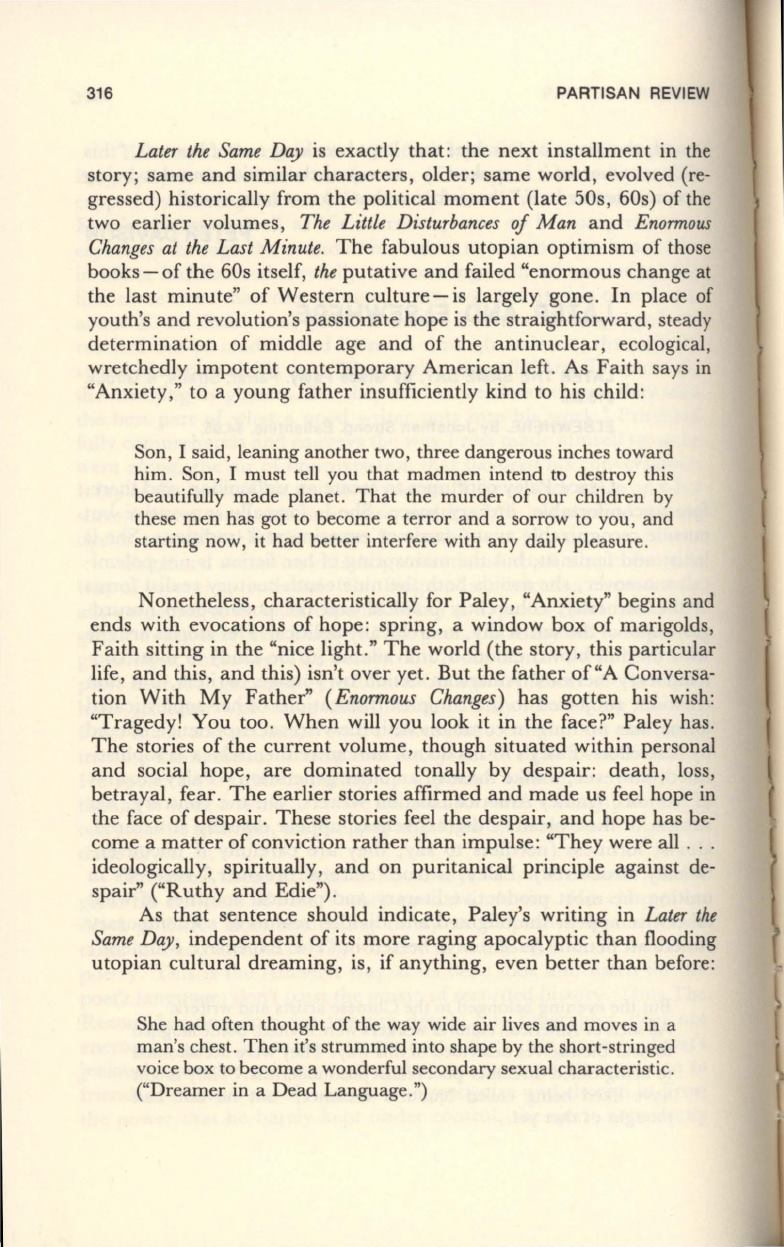
316
PARTISAN REVIEW
Later the Same Day
is exactly that: the next installment in the
story; same and similar characters, older; same world, evolved (re–
gressed) historically from the political moment (late 50s, 60s) of the
two earlier volumes,
The Little Disturbances of Man
and
Enormous
Changes at the Last Minute.
The fabulous utopian optimism of those
books - of the 60s itself,
the
putative and failed "enormous change at
the last minute" of Western culture-is largely gone. In place of
youth's and revolution's passionate hope is the straightforward, steady
determination of middle age and of the antinuclear, ecological,
wretchedly impotent contemporary American left. As Faith says in
"Anxiety," to a young father insufficiently kind to his child:
Son, I said, leaning another two , three dangerous inches toward
him. Son, I must tell you that madmen intend to destroy this
beautifully made planet. That the murder of our children by
these men has got to become a terror and a sorrow to you, and
starting now, it had better interfere with any daily pleasure.
Nonetheless, characteristically for Paley, "Anxiety" begins and
ends with evocations of hope: spring, a window box of marigolds,
l
Faith sitting in the "nice light ." The world (the story, this particular
life, and this, and this) isn't over yet. But the father of "A Conversa-
tion With My Father"
(Enormous Changes)
has gotten his wish:
"Tragedy! You too. When will you look it in the face?" Paley has.
The stories of the current volume, though situated within personal
and social hope, are dominated tonally by despair: death, loss,
betrayal, fear. The earlier stories affirmed and made us feel hope in
the face of despair. These stories feel the despair, and hope has be–
come a matter of conviction rather than impulse: "They were all .. .
ideologically, spiritually, and on puritanical principle against de–
spair" ("Ruthy and Edie").
As that sentence should indicate, Paley's writing in
Later the
Same Day,
independent of its more raging apocalyptic than flooding
utopian cultural dreaming, is, if anything, even better than before:
She had often thought of the way wide air lives and moves in a
man's chest. Then it's strummed into shape by the short-stringed
voice box to become a wonderful secondary sexual characteristic.
("Dreamer in a Dead Language.")


